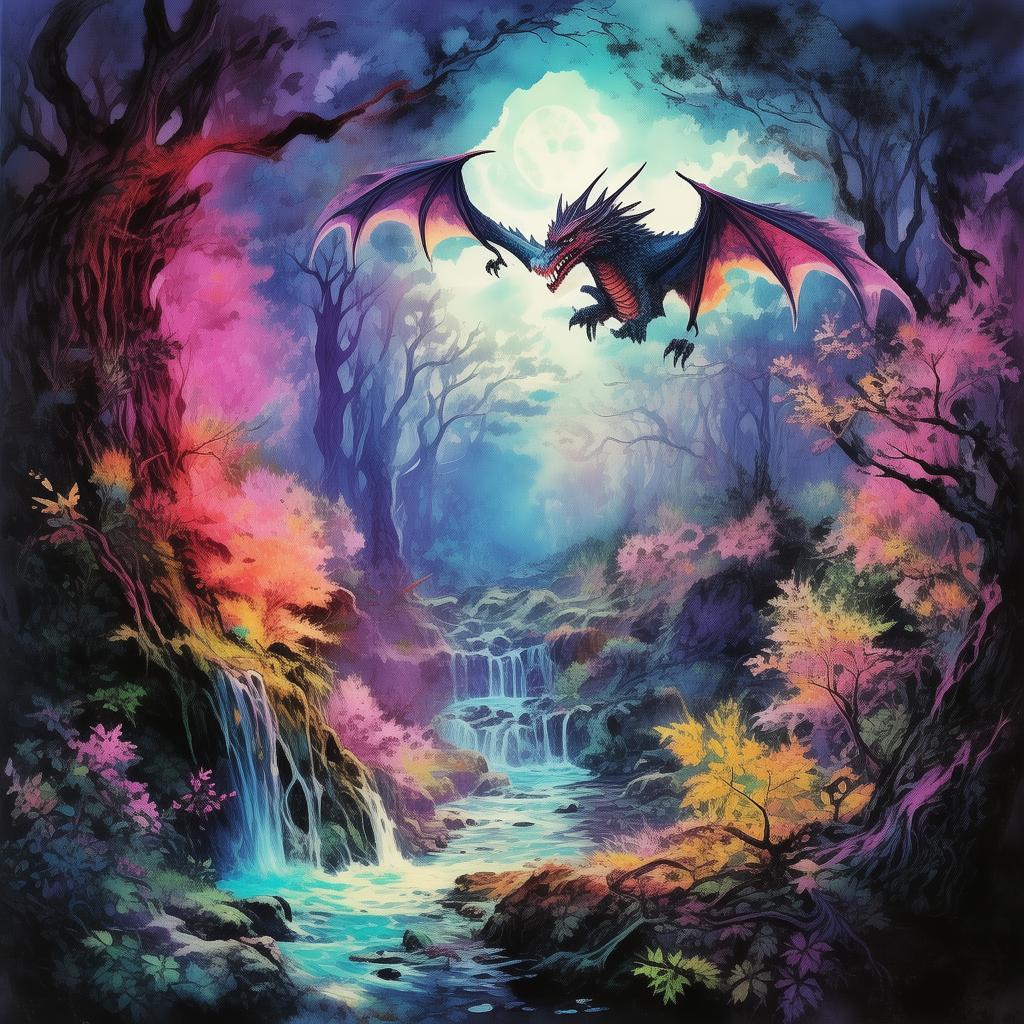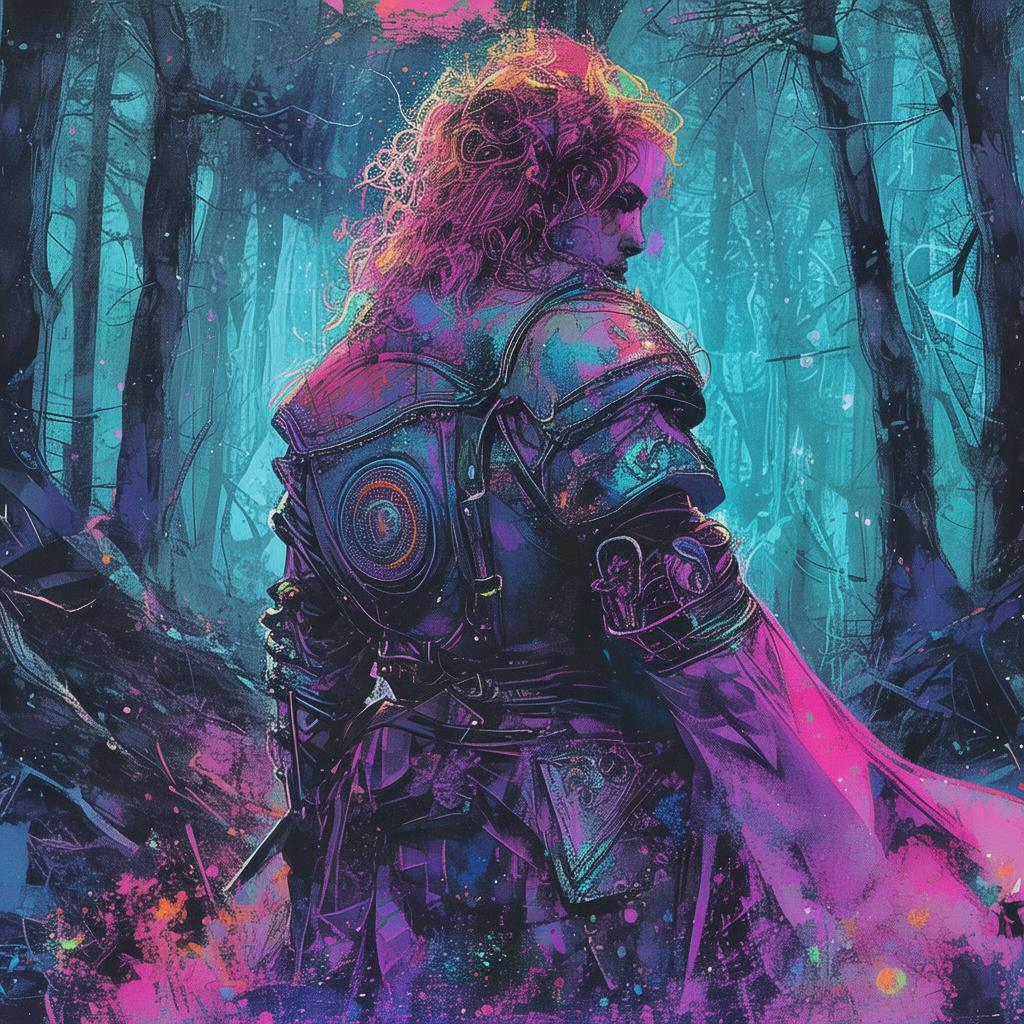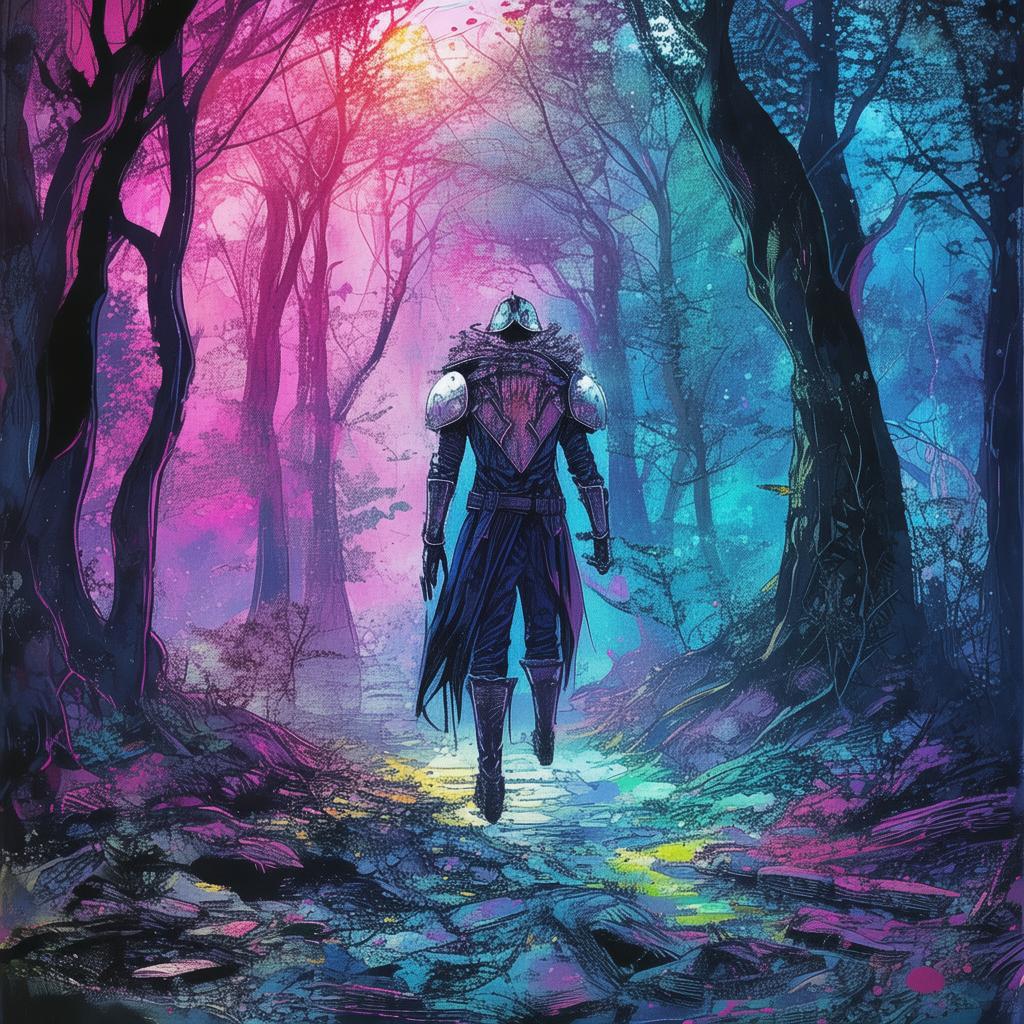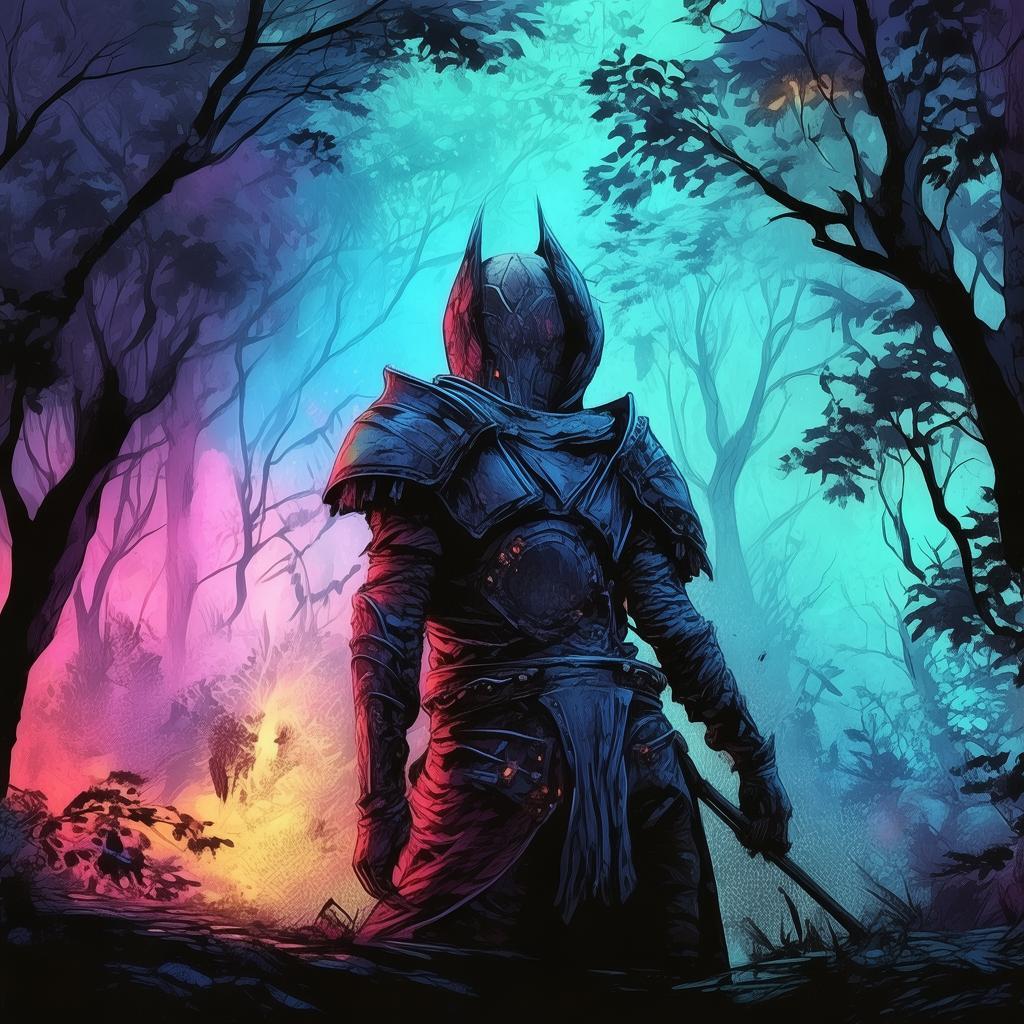The Last Symphony of the Damned
In the shadow of a world where the living and the undead coexist in a delicate balance, the remnants of humanity have banded together in fortified enclaves. Among these enclaves, the Golden Grotto stands as a beacon of hope, a place where the dead are given a second chance to live, and where the living can find solace in the music of the past.
Amara, a young and gifted violinist, has found her home in the Golden Grotto. Her music is a testament to the resilience of the human spirit, a reminder of what it means to be alive. Yet, beneath the surface of her melodies, there lies a haunting past that she has kept locked away.
One night, as the moon casts its pale light over the ruins of what once was, Amara is drawn to an old, abandoned concert hall. It is there that she discovers a collection of sheet music, each page more worn and tattered than the last. Among them is a score for a symphony, one that has never been performed. It is titled "The Last Symphony of the Damned."
Intrigued by the music's haunting beauty, Amara begins to practice the symphony, her fingers dancing across the strings in a rhythm that speaks of loss and hope. As she delves deeper into the composition, she finds herself drawn to the story of the symphony's composer, a man named Lucien, who had once been a revered conductor of the Golden Grotto's orchestra.
Lucien's story is one of redemption and tragedy. A former soldier, he had fallen in love with a woman who was killed by the undead. Devastated by her loss, Lucien turned to music as a way to honor her memory. His symphony was to be his final masterpiece, a testament to the love that had been taken from him.
As Amara becomes more engrossed in Lucien's story, she begins to feel a strange connection to him. She imagines conversations with the man, his voice echoing in her mind, and she finds herself drawn to the concert hall, where she feels the presence of his spirit.
One evening, as Amara is practicing the symphony, she hears a noise outside the concert hall. She steps out to investigate and is confronted by a zombie, its eyes glowing with a faint light. The creature speaks, not in a growl, but in a voice that carries the weight of years of silence.
"The symphony," it says, "is a lie. Lucien's love was not enough to save her. His music will never be heard again."

Amara is taken aback by the creature's words, but she presses on, determined to complete the symphony. She returns to the concert hall, her resolve strengthened by the zombie's challenge.
Days turn into weeks, and Amara's practice of the symphony becomes a ritual. She feels the music flowing through her veins, a force that drives her forward. The Golden Grotto's inhabitants begin to notice her dedication, and they too are drawn to the concert hall, where the symphony's melodies can be heard.
As the symphony nears completion, Amara learns that the zombie she encountered is the last of Lucien's creations, a living reminder of the composer's failed attempt to bring the dead back to life. The creature, named Remnant, has been guarding the concert hall for years, waiting for someone to complete the symphony and honor Lucien's memory.
On the night of the symphony's premier, the Golden Grotto is filled with anticipation. Amara steps onto the stage, her violin in hand, and begins to play. The music is powerful, a blend of sorrow and hope that stirs the hearts of all who hear it.
As the final notes ring out, the concert hall falls into a moment of silence. Then, a collective gasp is heard as the walls of the hall begin to tremble. The zombies that had been kept at bay by the Golden Grotto's defenses start to move, drawn by the symphony's final chords.
Amara's heart races as she looks out at the crowd, her music now a beacon for the undead. But as the zombies approach, she sees Remnant standing at the front of the crowd, his eyes filled with a newfound peace.
"The symphony has been completed," Remnant says, his voice resonating with the power of the music. "Lucien's love has been honored, and his music will live on."
With that, the zombies stop in their tracks, their movements stilled by the symphony's final note. Amara looks out at the crowd, her music having bridged the gap between the living and the dead.
In that moment, she understands that the symphony is not just a piece of music, but a testament to the enduring power of love and the human spirit. She looks to Remnant, who nods in acknowledgment, and then to the crowd, who are now singing along with the symphony.
As the last note fades, Amara knows that her journey is far from over. But she also knows that she has found her purpose, to use her music to heal the world, one note at a time.
The Last Symphony of the Damned is a tale of love, loss, and redemption, a story that will resonate with readers long after the final note has been played.
✨ Original Statement ✨
All articles published on this website (including but not limited to text, images, videos, and other content) are original or authorized for reposting and are protected by relevant laws. Without the explicit written permission of this website, no individual or organization may copy, modify, repost, or use the content for commercial purposes.
If you need to quote or cooperate, please contact this site for authorization. We reserve the right to pursue legal responsibility for any unauthorized use.
Hereby declared.









